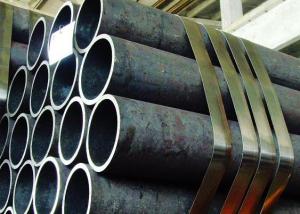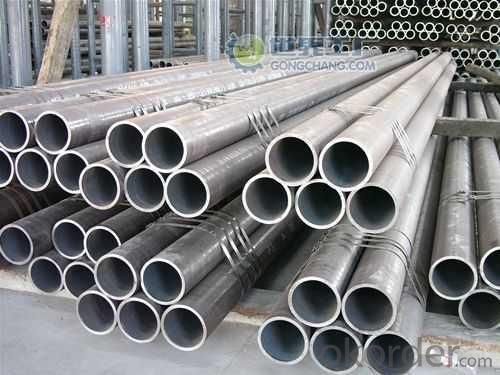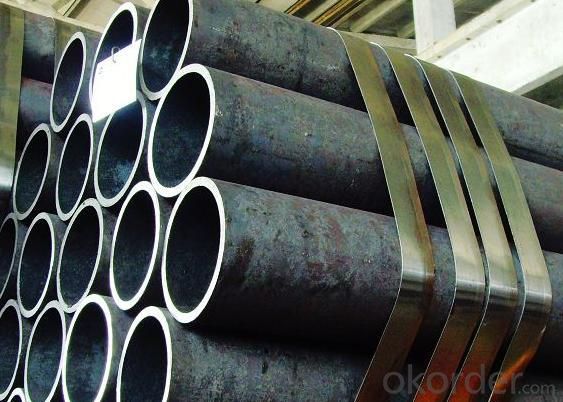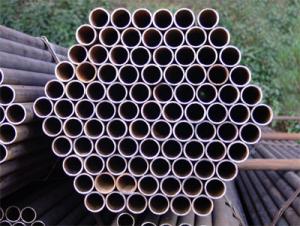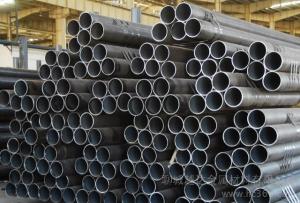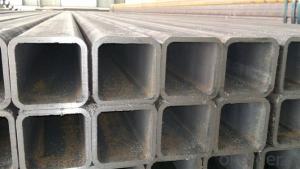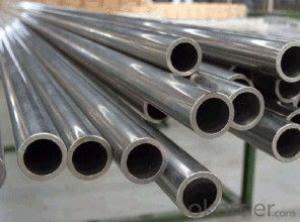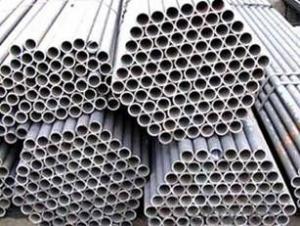Seamless Steel Pipe for lpg gas cylinder
- Loading Port:
- China Main Port
- Payment Terms:
- TT or LC
- Min Order Qty:
- 5mt m.t.
- Supply Capability:
- 5000 Tons Per Month m.t./month
OKorder Service Pledge
OKorder Financial Service
You Might Also Like
Seamless Steel Pipe for lpg gas cylinder
Application of Seamless Steel Pipe for lpg gas cylinder
The company producsts including seamless steel gas cylinder
for industry and medical gas use. We can make cylinder
Standard of Seamless Steel Pipe for lpg gas cylinder
apply to standard of DOT3AA, JIS8241, EN1964,
ISO9809,GB5099, KSB6210. We also produce cylinder with
Certificate of Seamless Steel Pipe for lpg gas cylinder
CCS,BV, LLODY'S, ABS.
Description of Seamless Steel Pipe for lpg gas cylinder
Standard | GB5099 |
Material | 34Mn2V/37Mn/30CrMo |
Nominal Diameter | 219/232/267/279/325(mm) |
Water Capacity | 20-80(L) |
Nominal Height | 815-1780(mm) |
Nominal Weight | 30.5-103(kg) |
Service Pressure | 15/20(MP) |
Wall Thickness | 4.7-7.0(mm) |
Packing of Seamless Steel Pipe for lpg gas cylinder
Black paint or varnish ,plastic caps with the both ends
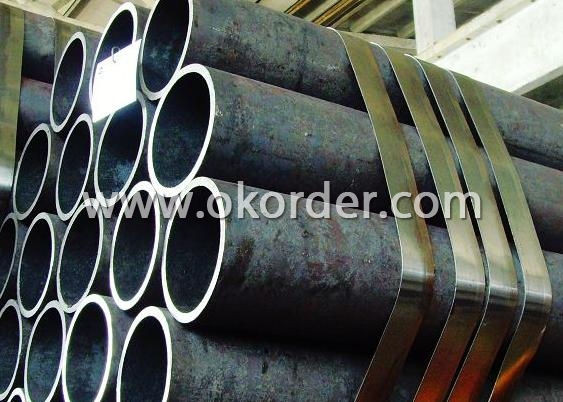
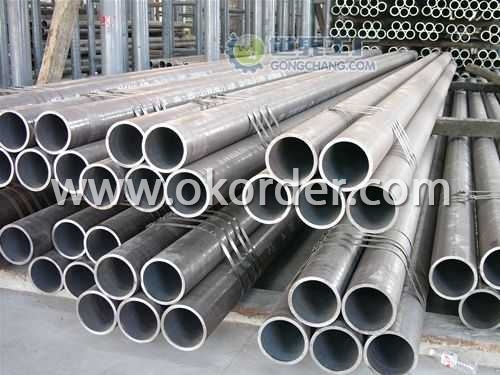
- Q: What are the different methods of pipe lining for steel pipes?
- Pipe lining for steel pipes can be done using various methods, each with its own unique features and benefits. These methods include: 1. Spray lining: A specially formulated coating is sprayed onto the inside of the steel pipe, creating a protective barrier against corrosion and chemical damage. Spray lining is a popular choice for smaller pipes due to its cost-effectiveness and quick installation. 2. Cured-in-place pipe lining (CIPP): This method involves inserting a flexible liner into the steel pipe and then curing it in place using steam or hot water. CIPP restores the pipe's structural integrity and is commonly used for larger pipes without the need for excavation. 3. Slip lining: By inserting a slightly smaller diameter pipe into the existing steel pipe and filling the space between them with cementitious material, slip lining rehabilitates pipes with minor defects and extends their lifespan. 4. Fold-and-form lining: A flexible liner is inserted into the steel pipe and expanded to its diameter using mechanical or hydraulic processes. The liner is then folded and formed to fit the pipe's contours before being cured in place. Fold-and-form lining is suitable for pipes with irregular shapes or bends. 5. Coating lining: A protective coating is applied to the inside surface of the steel pipe using spraying, brushing, or rolling methods. This coating acts as a barrier against corrosion and chemical damage and is commonly used for large pipes or those in harsh environments. Each method has its own advantages and disadvantages, and the selection will depend on factors such as pipe diameter, condition, budget, and project requirements. Consulting with a professional pipe lining contractor is crucial to determine the most suitable method for a specific steel pipe rehabilitation project.
- Q: How are steel pipes used in the construction of offshore platforms?
- Steel pipes are extensively used in the construction of offshore platforms due to their durability, strength, and corrosion resistance. These pipes form the structural framework of the platform, providing support and stability. They are utilized for various purposes such as transporting fluids, including oil and gas, and for the installation of risers, which connect the platform to subsea equipment. Additionally, steel pipes are employed in the construction of pipelines and flowlines, facilitating the transportation of hydrocarbons from the platform to onshore facilities.
- Q: What are the different methods of pipe inspection for steel pipes?
- Steel pipes can be inspected using various methods. Here are some commonly employed techniques: 1. Visual Inspection: Trained inspectors visually examine both the exterior and interior of the pipe to detect any visible defects or abnormalities. This preliminary method is often used before more advanced techniques are applied. 2. Magnetic Particle Inspection (MPI): By applying a magnetic field to the steel pipe and iron particles to its surface, inspectors can identify surface cracks or defects. Leakage of magnetic flux caused by these abnormalities can be detected with this method, which is particularly effective for ferromagnetic materials. 3. Ultrasonic Testing (UT): UT is a non-destructive testing method that utilizes high-frequency sound waves to identify internal defects or anomalies in steel pipes. A transducer sends ultrasonic waves into the pipe, and reflections or echoes of the sound waves are analyzed to determine the presence of defects, such as corrosion, cracks, or variations in wall thickness. 4. Radiographic Testing (RT): This method involves using X-rays or gamma rays to create an image of the internal structure of the steel pipe. The resulting image reveals any defects, such as cracks, corrosion, or weld discontinuities. RT is commonly used for inspecting welded joints. 5. Eddy Current Testing (ECT): ECT is a non-destructive testing technique that utilizes electromagnetic induction to detect surface and near-surface defects in steel pipes. By passing a coil carrying an alternating current over the pipe's surface, any changes in electrical conductivity or magnetic field caused by defects are detected and analyzed. 6. Acoustic Emission Testing (AET): AET involves detecting and analyzing high-frequency acoustic signals emitted by materials undergoing deformation or damage. In the case of steel pipes, AET can monitor and identify defects like cracks, leaks, or corrosion by analyzing the acoustic signals emitted during service or under stress. These methods are just a few examples of commonly used techniques for inspecting steel pipes. The choice of method depends on factors such as the type of defect being sought, accessibility of the pipe, desired sensitivity level, and cost and time constraints. Using a combination of inspection techniques is often recommended to ensure a thorough assessment of steel pipes.
- Q: What are the different types of steel pipe coatings for underground gas pipelines?
- There are several types of steel pipe coatings commonly used for underground gas pipelines, including fusion-bonded epoxy (FBE) coating, polyethylene (PE) coating, and polyurethane (PU) coating. Each coating provides different levels of protection against corrosion and abrasion, ensuring the longevity and integrity of the gas pipeline.
- Q: Are steel pipes suitable for use in chemical plants?
- Yes, steel pipes are suitable for use in chemical plants. Steel pipes have excellent resistance to corrosion and high temperatures, making them ideal for transporting various chemicals and fluids in a safe and efficient manner. Their strength, durability, and versatility make them a preferred choice in the chemical industry.
- Q: How are steel pipes used in the transportation of fluids?
- Steel pipes are commonly used in the transportation of fluids due to their durability and strength. They are used to carry various types of liquids and gases, such as water, oil, natural gas, and chemicals. Steel pipes are able to withstand high pressure and temperature, making them ideal for long-distance transportation of fluids. They are widely used in industries like oil and gas, water supply, and sewage systems, providing a reliable and efficient means of fluid transportation.
- Q: What are the different types of steel pipe supports?
- Some different types of steel pipe supports include pipe hangers, pipe clamps, pipe straps, and pipe saddles. These supports are used to secure and stabilize pipes in various applications, ensuring their proper alignment and preventing sagging or movement.
- Q: Are steel pipes suitable for underground sewage systems?
- Yes, steel pipes are suitable for underground sewage systems. They are durable, strong, and resistant to corrosion, making them a reliable choice for carrying sewage underground. Additionally, steel pipes have a long lifespan and can withstand the pressure and weight of the surrounding soil, making them a suitable option for underground sewage systems.
- Q: What are the different methods of pipe joining using steel pipes?
- Some of the different methods of pipe joining using steel pipes include butt welding, socket welding, threaded connections, and flange connections.
- Q: Can stainless steel pipes spray black paint?
- Can. The surface roughening with a thick gauze, do not use ordinary paint intensity difference. With resin paint, paint can be
1. Manufacturer Overview
| Location | Zhejiang, China |
| Year Established | 2007 |
| Annual Output Value | Below US$1 Million |
| Main Markets | |
| Company Certifications | API;ISO9001 |
2. Manufacturer Certificates
| a) Certification Name | |
| Range | |
| Reference | |
| Validity Period |
3. Manufacturer Capability
| a) Trade Capacity | |
| Nearest Port | Shanghai |
| Export Percentage | 41% - 50% |
| No.of Employees in Trade Department | 300-500 People |
| Language Spoken: | English; Chinese |
| b) Factory Information | |
| Factory Size: | 360,000 Squre meters |
| No. of Production Lines | Above 10 |
| Contract Manufacturing | OEM Service Offered;Design Service Offered |
| Product Price Range | High Average |
Send your message to us
Seamless Steel Pipe for lpg gas cylinder
- Loading Port:
- China Main Port
- Payment Terms:
- TT or LC
- Min Order Qty:
- 5mt m.t.
- Supply Capability:
- 5000 Tons Per Month m.t./month
OKorder Service Pledge
OKorder Financial Service
Similar products
Hot products
Hot Searches
Related keywords


